The Eco-club was established in order to inculcate sustainable and eco-friendly practices in the campus. It aims to make environmental awareness and action as an intrinsic part of college life through environmentally viable practices. Eco Club Guwahati College is working as a part of National Green Crops (NGC), an initiative of Ministry of Environment, Forest and Climate Change (MoEFCC). The Eco club has been working with student and teacher members of the college for environment protection, conservation and awareness. The services of the Eco club are not just confined within the college campus but also outside the boundary of the college in association with the community. The Eco Club organizes awareness programmes to sensitize people about environmentally feasible lifestyle. There has been a growing realization that adoption of ecological and sustainable activities can go a long run in protecting the environment. The motto of the Eco club is to inculcate these habits in the students. The four major objectives of Eco-Club, Guwahati College are to:
Eco Club Guwahati College was awarded the “ Excellent Eco Club” by the Govt. of Assam. The award was received by Dr. Pinky Baruah, coordinator Eco Club on behalf of Guwahati College on 15 August 2022 at centrally organized function by the Ministry of Science and Technology, Govt of assam and ASTEC at Jorhat Science Centre. The award was presented by Hon’ble Minister Shri Keshab Mahanta in presence of MP Shri Kamakhya Prasad Tassa and Shri Tapan Gogoi.


World Environment Day is celebrated annually on 5 June since 1973 led by the United Nations Environment Programme (UNEP). World Environment Day is the largest global platform for environmental public outreach and is celebrated by millions of people across the world. “Only One Earth” was the slogan for the first United Nations Conference on the Human Environment, held in Stockholm in 1972. This put sustainable development on the global agenda and led to the establishment of World Environment Day. Fifty years later, Sweden hosted Stockholm+50 from 2 to 3 June, and World Environment Day on 5 June.
As a part of global celebration, the Department of Zoology and Eco Club, Guwahati College in association with IQAC celebrated World Environment Day on 4 June with a day-long program.
The program began with the plantation of saplings in the college campus. Saplings selected for plantation were of Muga host and food plants. Muga, (Antheraea assamensis) the endemic species and pride of Assam is facing serious threat due to various climatic and environmental impacts. The host plants of Muga silkworms are also dwindling. To generate awareness among the students and public about the conservation of the Muga silkworm host plants were selected for plantation. The saplings were provided by the Central Muga Research Centre, Boko, Kamrup.
The saplings were planted by senior teachers of the college.
This was followed by an interactive session. Dr. Sushil Kumar Sarmah, Associate Professor, Department of Zoology was the resource person and speaker for the session. Dr. Sarmah spoke on “Ecosystem services, lifestyle, culture and TKS”. He spoke at length about the prospects of student research projects which the undergraduate students may take up. The evolution of TKS is very much local in nature and associated with a particular environmental and/or socio-cultural context. ESs arise when an ecological structure (e.g., wood fiber) or function (e.g., filtering function of vegetation and soils) directly or indirectly contributes toward meeting a human need or want. Such services (e.g., provision of clean drinking water) generate benefits (e.g., improved human health) that contribute to overall well-being. Dr. Sarmah stated that all human–environment frameworks must address complements and conflicts among diverse sets of human needs because of the limited capacities of ecosystems to meet those needs sustainably.
The program was anchored by Ms Sagarika Das. Dr. Arati Bairagee spoke about the significance of World Environment Day. Dr. Sonaram Hazarika briefed about the importance of environmental conservation. Dr. Dinesh Kakati offered the vote of thanks. Dr. Pinky Baruah was the organizing secretary of the event. The program was attended by many students and teachers of the college. The audience also interacted with the speaker.
World Wetlands Day is celebrated annually on 2 February since 1971 to mark the date of the adoption of the Convention on Wetlands. It aims to raise global awareness about the vital role of wetlands for people and the planet. As a part of the event the Eco Club, Guwahati College did a wetland survey at Khamrenga Beel, Chandrapur with a day-long program to generate awareness on the importance of wetlands amongst students and locals. Wetlands are rich with biodiversity and are a habitat for a dense variety of plant and animal species. During this event, activities such as bird watching, hydrophytes study, water quality assessment and interactive sessions with the local community were done. Dr. Pinky Baruah, Coordinator, Eco Club briefed the students about the importance of wetland day. Dr. Dinesh Kakati explained the importance of wetland ecology. Dr. Uma Kanta Chowra helped the students to identify the various hydrophytes present in the wetland. The program was also attended by Dr. Nicodim Basumatary and 25 students. The program was sponsored Assam Science Technology and Environment Council (ASTEC).
Name of Campaign/Programme: Awareness on Curbing the use of Single-Use Plastics (SUPs) A day-long awareness cum cleaning drive was carried out by the students of the Eco Club in collaboration with the NSS Unit of Guwahati College with a financial grant from ASTEC. The theme of the program was to spread awareness on curbing single-use plastic. A short street play was enacted by students emphasizing the dangers of SUP. Eco-friendly dustbins were donated to local shops in an attempt to encourage the use of more sustainable options. The students and teachers carried out a rally and cleaned selective areas of the Chunchali area littered with SUPs. The students and teachers interacted with the local people and made them understand the hazardous impact of SUPs on the environment. A total of 120 participants including students and teachers participated in the awareness drive.
ACTIVITIES OF ECO CLUB
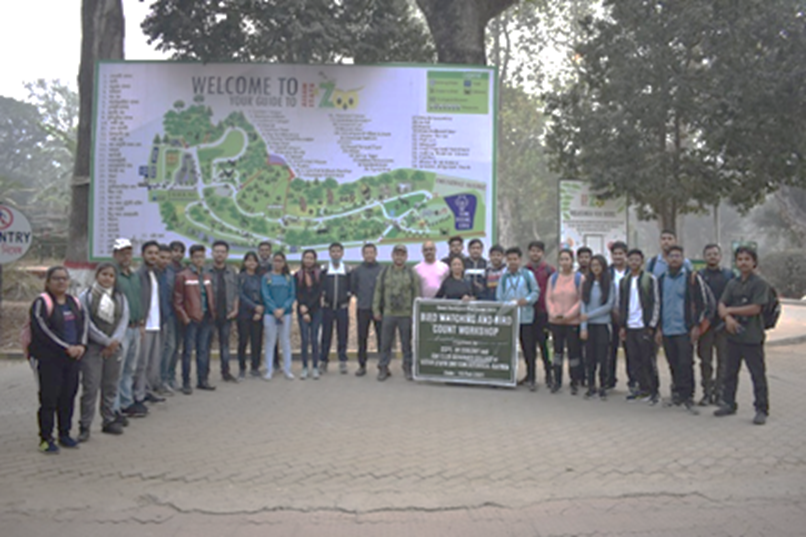
BIRD WATCHING AND E BIRD COUNT 15 FEB 2021 WORKSHOP ON BIRD WATCHING AND BIRD COUNT
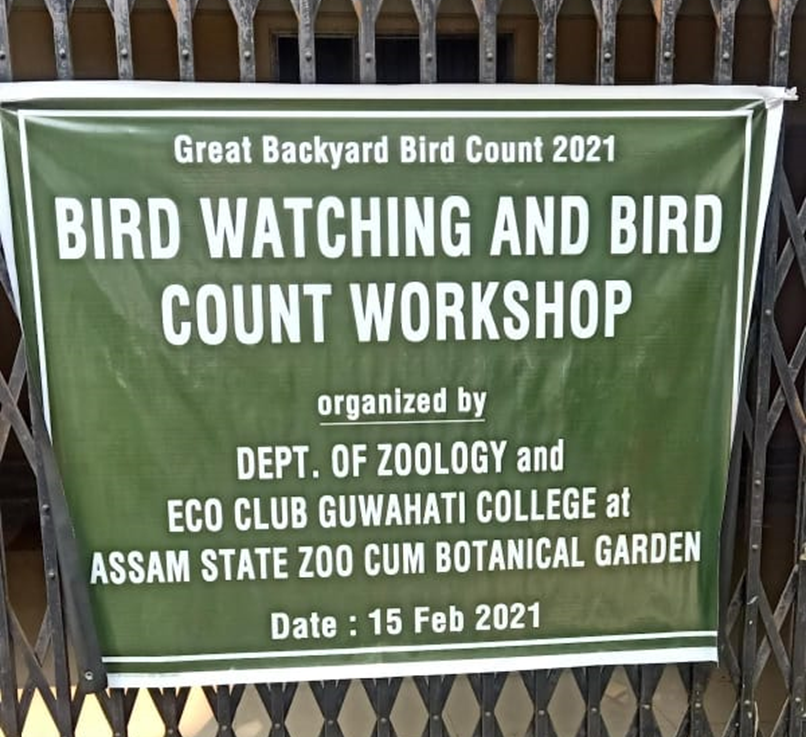
BIRD WATCHING AND E BIRD COUNT 15 FEB 2021 WORKSHOP ON BIRD WATCHING AND BIRD COUNT
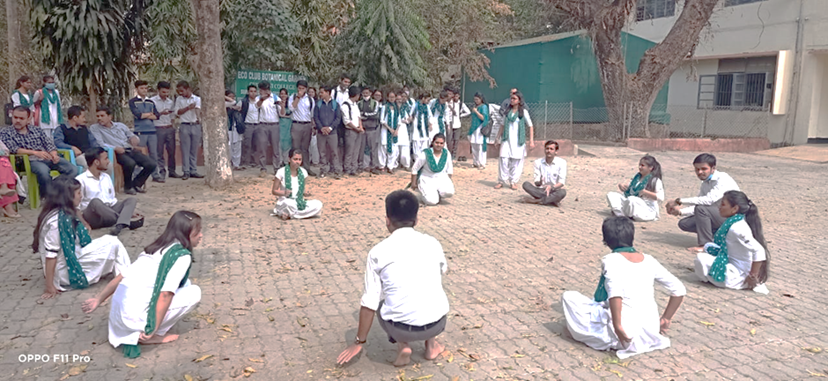
CELEBRATION OF NATIONAL SCIENCE DAY 27 FEB 2021
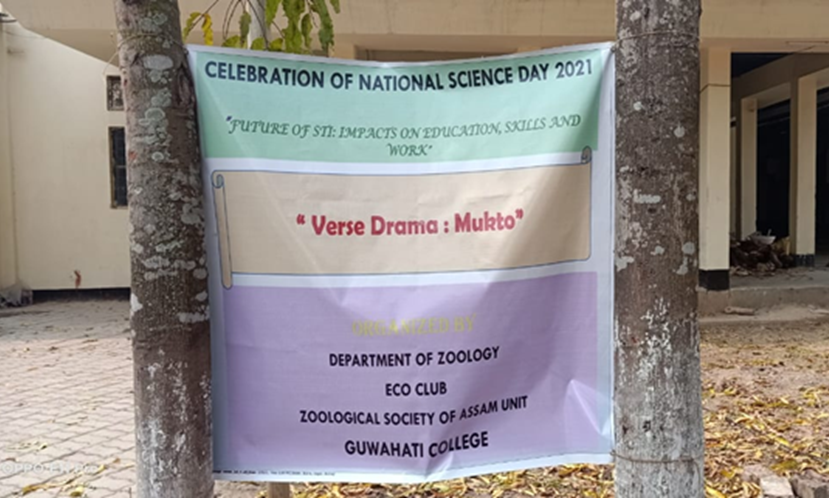
CELEBRATION OF NATIONAL SCIENCE DAY 27 FEB 2021
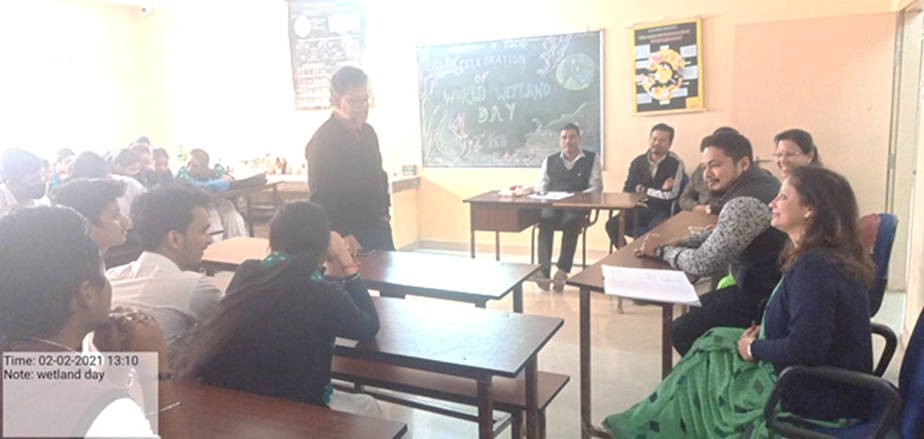
CELEBRATION OF WETLAND DAY 2 FEB 2021
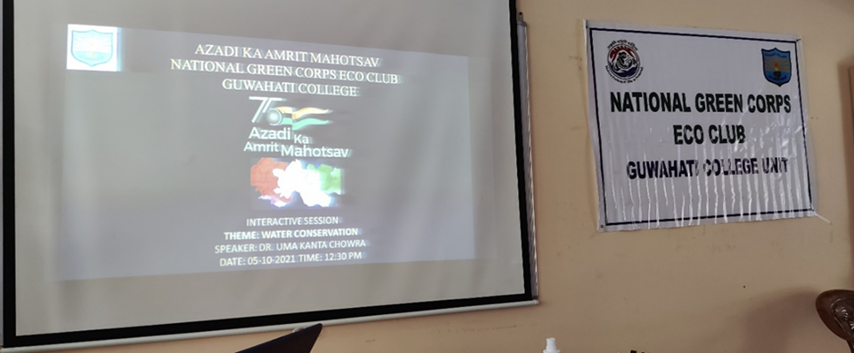
CELEBRATION OF AZADI KE AMRIT MAHOTSAV 2020
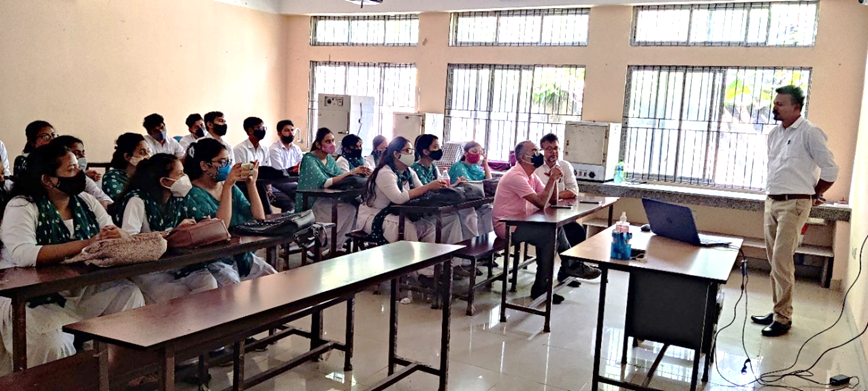
CELEBRATION OF AZADI KE AMRIT MAHOTSAV 2020
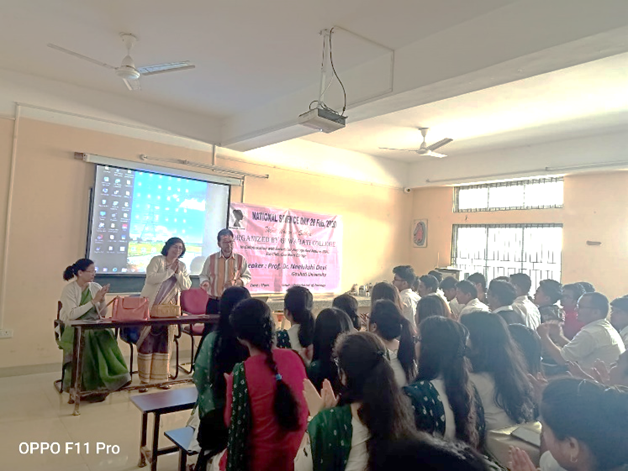
CELEBRATION OF NATIONAL SCIENCE DAY 28 FEB 2020
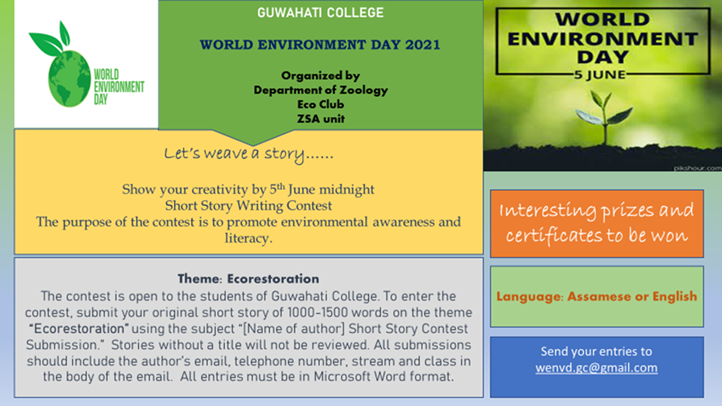
WORLD ENVIRONMENT DAY 5 JUNE 2020
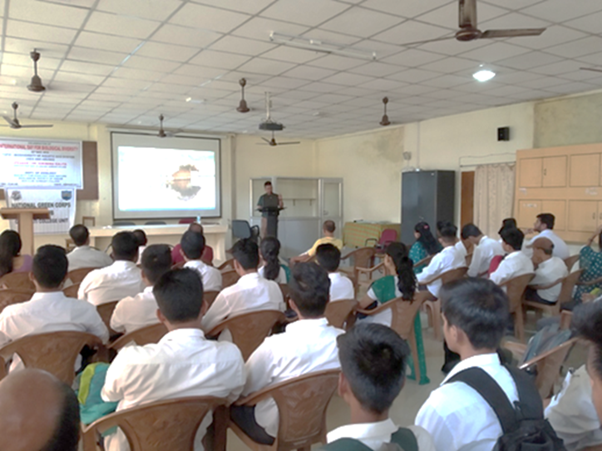
CELEBRATION OF INTERNATIONAL DAY FOR BIOLOGICAL DIVERSITY, 22ND MAY, 2019
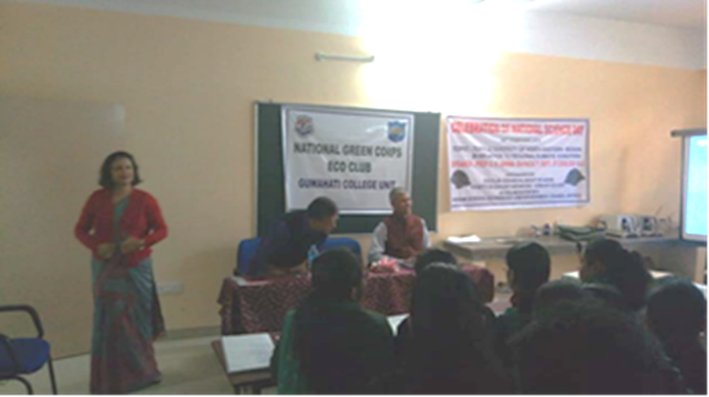
CELEBRATION OF NATIONAL SCIENCE DAY 28TH FEBRUARY 2019
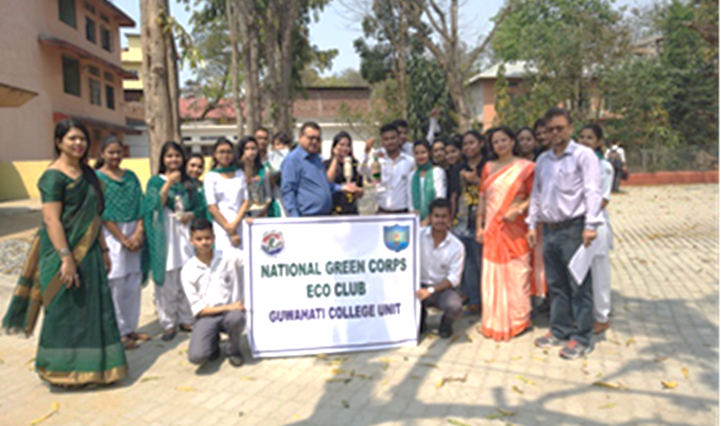
WORLD SPARROW DAY 20TH MARCH 2019
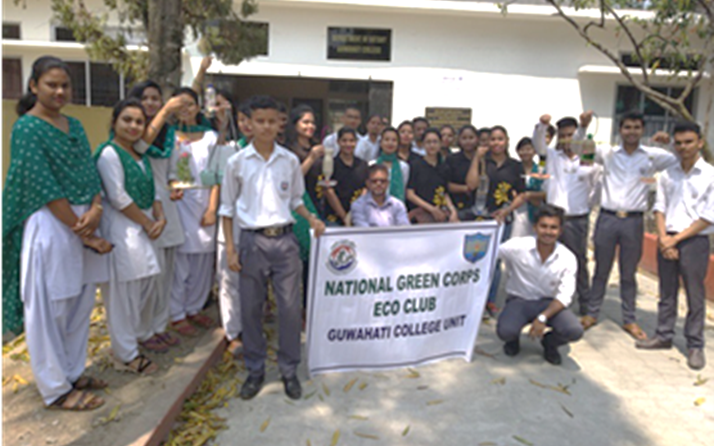
WORLD SPARROW DAY 20TH MARCH 2019
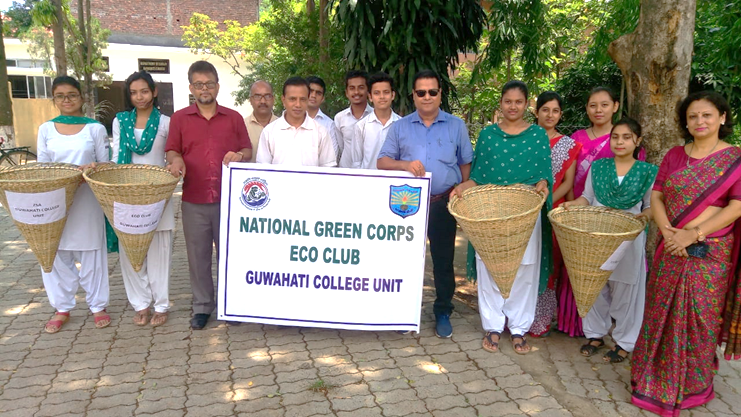
WORLD ENVIRONMENT DAY 20019